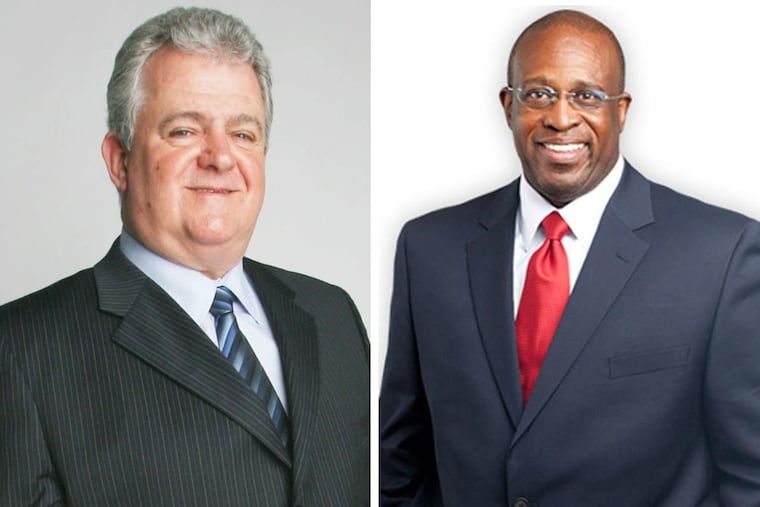Former judge admits concealing payments he got from Brady campaign
The proceedings offered no clues to whether Brady, chairman of the Democratic City Committee and one of the longest serving U.S. representatives in the state, might eventually face charges himself.

A onetime challenger to U.S. Rep. Bob Brady has agreed to cooperate – and potentially testify — in an ongoing federal investigation into $90,000 he says the congressman's campaign gave him to drop out of a 2012 primary race.
But Jimmie Moore, a former Philadelphia Municipal Court judge, remained tight-lipped Monday on whether his testimony could implicate Brady, one of Philadelphia's most powerful Democrats, in a crime.
The details of Moore's cooperation with the government emerged during a federal court hearing in which the onetime Brady rival pleaded guilty to falsifying his campaign finance filings to conceal the $90,000 payment.
His lawyer, Jeffrey Miller, said in court that Moore had been working with government lawyers for months, but he declined afterward to elaborate on the extent of that cooperation or where it might have led.
"There is a vast amount of evidence out there," he said. "Whether it points to the congressman doing something illegal or exculpates him, I can't say."
Moore's plea agreement, however, told a different story.
The document – without identifying Brady by name — says explicitly that the congressman and Moore hatched a plan together to conceal the source and reasons for the payment on Moore's campaign filings.
"[Brady] and the defendant agreed and understood that the payment from [Brady's] campaign … would be disguised," the document reads, "and the deception would include hiding at least some of [Brady's] funds as the purchase of a poll analyzing the primary matchup between [them], notwithstanding the fact that [Brady] was already in possession of this same poll."
Moore told U.S. District Judge Jan E. DuBois in court Monday that that summary of events was accurate.
Prosecutors, however, offered no clues on their intentions regarding the congressman, who has chaired Philadelphia's Democratic City Committee for three decades.
Brady's lawyer, James Eisenhower, did not return calls for comment Monday.
Since the FBI investigation burst into public view this summer with a similar guilty plea from a Moore campaign aide, Brady has maintained that the payment to Moore's campaign was legal, properly documented, and carried out largely by his subordinates.
Meanwhile, his lawyers have scrambled to convince the Justice Department that there is no evidence that the congressman did anything wrong and to forestall what certainly would be a high-profile and politically damaging court battle should he be indicted.
Brady, a former union leader now in his 10th term in Congress, rarely has faced formidable opposition at the polls. Moore was no exception.
At the end of 2011, after Moore's campaign was underway, he had less than $4,000 after pouring tens of thousands of dollars of his own money into the race, federal campaign-finance reports show. At the same time, Brady reported $758,355 on hand.
Prosecutors have alleged that Moore's decision to bow out was driven by a secret deal with his opponent.
Brady allegedly agreed to cover Moore's debts, including more than $80,000 the former judge had personally loaned his campaign, as well as to provide jobs for both Moore and his former fiancée and campaign manager, Carolyn Cavaness.
Because federal campaign contribution limits at the time capped the amount that one candidate could give another's campaign at $2,000 for a primary election, Brady allegedly funneled the money from his campaign coffers through two political consulting firms run by longtime campaign aides.
The aides – Ken Smukler and Don "D.A." Jones – paid a consulting firm that Cavaness has said she created at Moore's instruction, solely to receive the funds from Brady's war chest.
Though prosecutors say that some of the money went toward paying off Moore's campaign debts, he and Cavaness spent most of it on themselves. None of it ever showed up on Moore's campaign finance filings.
Cavaness pleaded guilty in July. Both she and Moore could face up to five years in prison when they are sentenced.